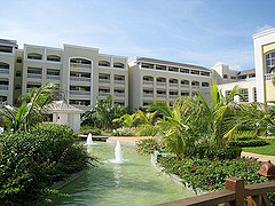 「牙買加環境信託組織」23日晚間推出一支片長92分鐘的記錄影片,內容揭開薔薇色太陽與海與沙共成一幅絕世美景背後,所隱藏的猙獰事實,該片因此命名為「出賣牙買加」(Jamaica for Sale)。
「牙買加環境信託組織」23日晚間推出一支片長92分鐘的記錄影片,內容揭開薔薇色太陽與海與沙共成一幅絕世美景背後,所隱藏的猙獰事實,該片因此命名為「出賣牙買加」(Jamaica for Sale)。
本片採訪居住在牙買加與加勒比地區不同面孔與聲音,深切表達他們對於海岸線上一棟棟從地表竄起的豪華旅館建築的觀感。透過影像,呈現牙買加發展觀光業的代價是如何由人民來埋單。
例如,片中就剪輯了小型旅館業者與其他居民對於大範圍剷平紅樹林、溼地,以及許多原生鳥類與海龜的繁殖地等等的論爭。
片頭一開始,建築工人們細數來自西班牙的旅館業者剝削與虐待他們的低劣舉動。
漁民則列舉令人訝異甚至不禁諷刺的指證,在豪華旅店大肆開發下導致漁獲量銳減,迫使漁民們另覓新漁場,但終究是徒勞。甚至有旅館業者向他們抱怨旅館周邊海域遍尋不著豐富的海洋生態,使得遊客敗興而歸。
一些政治代表、社會科學家和經濟學家們對於牙買加觀光業發展所引發的諸多問題進行評議,包括奴役勞工的情況、窮苦人家仍是觀光利益的邊緣人,以及大規模開發帶來的衛生問題等。
「出賣牙買加」一片中亦描述到,為了替遊輪開道,一些富具歷史象徵意義的場址何其脆弱,別無選擇地遭到拆除。位於牙買加北部的費爾茅斯鎮正是一例,該鎮擁有百年歷史的碉堡、教堂,和人聲曾經鼎沸的市集,甚至是比紐約市還早出現的自來水。
「出賣牙買加」中之一景為旅館保全人員在海灘上追趕當地人民。這片海灘原屬大家所共有,而影片在此一場景中放上加勒比歌曲「這海灘是我地盤」。然而,牙買加人損失的不只有明媚海灘的使用權。知名旅館的廢棄物處理站造成一鄰近村落內,瀰漫著揮之不去的惡臭氣味,社區居民對於這樣的情況卻無奈地直指無計可施。
另外,該片亦指出遊客們對環境造成的傷害程度:遊客平均飲水量超過當地住民10倍,且製造出3倍以上的垃圾。而觀光盛行也帶動對石油的需求,絕對加劇氣候變遷。
從「出賣牙買加」中可以看到在發展觀光的錢潮下,當地人民如何受到阻隔、限制及噤聲。因此,說本片揭開觀光發展的醜陋與代價,實不為過。
The Jamaica Environmental Trust on Thursday night launched "Jamaica for Sale," a 92 minute video documentary highlighting disturbing issues behind the island's normally rosy sun, sea and sand tourism image.
The video features the faces and voices of Jamaicans and other Caribbean personalities talking about life in the wake of a burst of construction of mega-hotels across Jamaica's coastline. The film shows how gains from tourism development come at a high price to the people.
The film features small hoteliers and other citizens talking about the wide scale removal of the mangroves, wetlands and the breeding grounds of indigenous birds and turtles.
Early in the film, construction workers detail the ill-treatment and low wages they receive from the Spanish hotel developers.
Fishermen gave startling and even unintentionally humorous testimonies about the disappearance of the fish caused by mega-hotel developments on the coast, and about fisher folks' futile attempts to find new fishing grounds. There was irony too as even the hoteliers in coastal properties complain about the lack of fish and other species in the seas their visitors come to enjoy.
Political representatives, social scientists and economists weighed in on the issue, speaking about the "slavery" conditions of the workers, the lack of economic benefit to the poorer people and great developments fronting squalor.
"Jamaica for Sale" shows how places of historical significance are disappearing to make way for cruise ship facilities. This will happen to Falmouth, a town in northern Jamaica that is the site of centuries old forts, churches and markets once so prosperous that it had running water before New York City.
"Jamaica for Sale" shows security guards chasing locals from beaches which were once free to them - while the soundtrack features a popular Calypsonian singing, "This beach is mine." But it is not just the beaches. In one village, the waste management plant from a prominent hotel causes a perpetual stink in the community, and the residents lament that apparently nothing is in the works to stop it.
Regarding the damage from tourists themselves, "Jamaica For Sale" points out that the average tourist drinks 10 times more water and produces three times more waste than locals. Tourism also demands high usage of energy derived from fossil fuels, which has implications for climate change.
"Jamaica for Sale" shows how local people are being cut off, penned in and denied their voice - all in the name of tourism development. The video places a major emphasis on the real price of tourism development.
全文及圖片詳見:ENS





